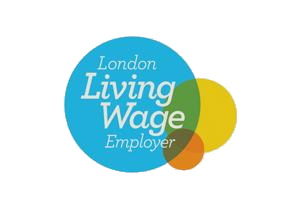Yesterday evening, the recently revised Levelling Up Bill was debated by the House of Lords. The amendments discussed included removing regulations designed to prohibit property developers from proceeding with development projects deemed to pose a threat to the nitrate purity of nearby waterways. It follows the original Bill’s intent of ‘scrapping EU-era red tape’ that would have diluted the regulations designed to minimise pollution in UK rivers.
What does this mean for house builders?
Nutrient neutrality is a prime issue for those in the housebuilding industry. Since 2019 and Natural England’s inaugural request of local authorities to restrict nitrate pollution caused by nearby developments it has been a lynchpin for the future of some developments.
Existing nutrient neutrality rules affect the speed in which developers can ‘break ground’. Mitigating nutrient pollution involves offsetting pollution by creating large-scale wetland habitats – or paying water companies to upgrade their sewage infrastructure. Many developers, notably SMEs, do not have the time or resources to involve themselves in lengthy mitigation disputes in an already adversarial and discretionary local planning system.
The property industry has welcomed the removal of the nutrient neutrality rule. The Chair of the All-Party Parliamentary Group for Housing Market and Housing Delivery, Ben Everitt MP described it as a “huge step towards unlocking housing for the next generation”. Everitt would be correct in claiming this – the measurable impact of scrapping the rule would be the construction of an estimated 100,000 new builds by 2030.
Considering the Government’s housebuilding target is 300,000 new homes a year by the ‘mid-2020s’, the dismantling of the nutrient neutrality rule would represent a considerable amount in the wider picture of UK development.
On the other side of the equation, environmental groups have condemned the move. Recently, the National Trust, Green Alliance, RSPB, and other charities have berated the Government for reneging on pledges to halt the decline of nature. Many have argued that the UK cannot afford any legislative regression in this particular environmental area. Others have argued that the approach is simply not a fair one, claiming that it will be taxpayers, rather than the ‘polluters’ who provide the funds to remedy any environmental harm. Both seemingly agree that existing funding to offset pollution damage is insufficient – referencing £280 million pledged by the Government to Natural England to repair any environmental damage.
Which side’s claims have more merit?
The development industry contributes just a small percentage of total nitrate pollution in UK rivers. The agriculture sector is chiefly responsible for the increase, with creaking and substandard water treatment facilities exacerbating the damage to our ecosystem.
It is unfair to blame the Government’s decision to remove nutrient neutrality regulations on ‘corporate lobbyists’ endeavouring to increase profits whilst existing nutrient neutrality rules placed the responsibility of reducing pollution on developers, despite their environmental footprint being comparably small. Little progress will be made if the industry is the prime focus for those seeking to cut pollution – the true solution is a cross-sector effort. Why only penalise developers with these sweeping regulations?
Whilst nobody disputes that profit is important to housing developers, there is an inescapable reality that housing demand vastly outweighs existing supply. The Government must tackle this head on. As a result, claims suggesting that corporate interest has won over with the scrapping of the nutrient neutrality policy are a gross oversight of the housing crisis the UK faces.
To criticise this move on the grounds that the burden has been shifted over from developers to the ‘public purse’ is an argument that fails to grasp that housing is a social issue – not simply one driven by developer greed. Environmental harm caused by housing is a result of natural human wastage, it has to go somewhere. Given the pollution produced by new developments is relatively small, we ought to place greater emphasis on the homes that will be built as a result of this change – a thought process and decision the Government has evidently undertaken, and they are paying the price in Parliament.










